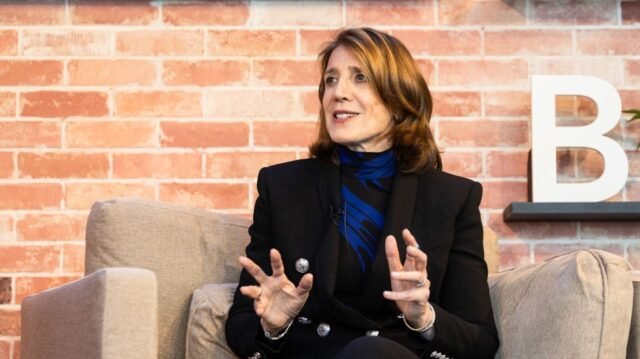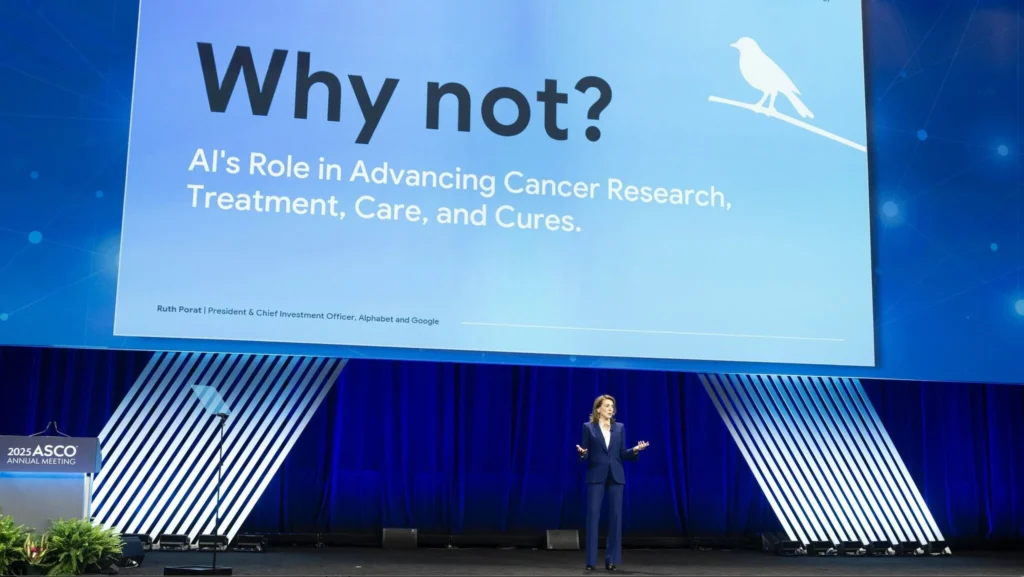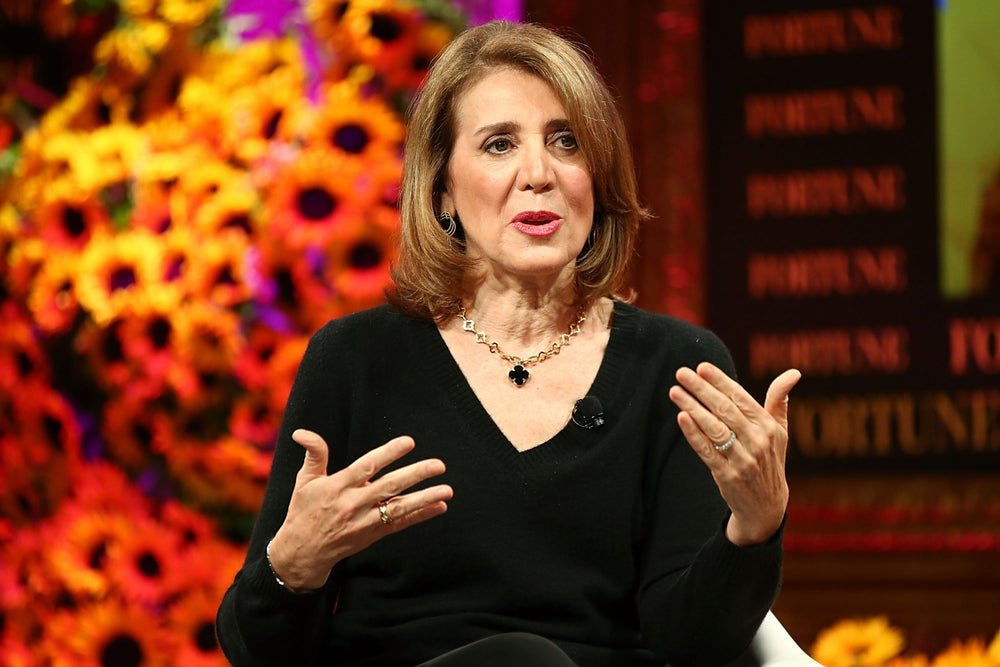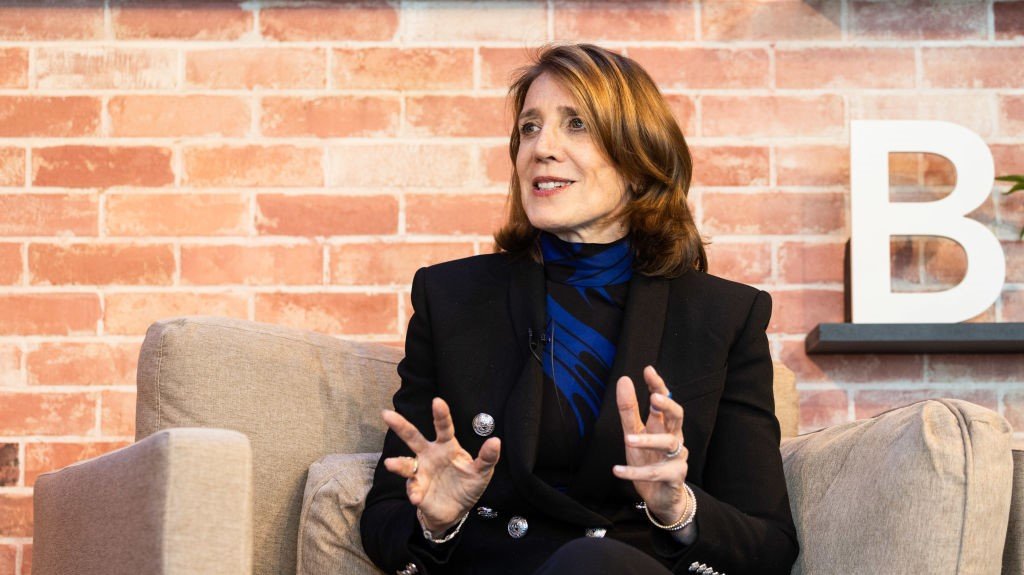
When one meets Ruth Porat – President and Chief Investment Officer of Alphabet Inc. (the parent of Google LLC) – one observes a rare combination: a finance heavyweight turned tech visionary, who now champions the idea that we can cure cancer in our lifetime thanks to artificial intelligence. Her remarks, delivered recently before key audiences and healthcare-tech forums, carry the weight of her personal story and professional gravitas.
Porat’s rise from the ranks of Wall Street (notably at Morgan Stanley) to one of the most influential roles in global technology underscores her conviction: transformative technology isn’t just business, it is human. According to Google Blog, her personal narrative— surviving cancer twice—adds deeper resonance to her belief that AI can move us from hope to action.
In her words, “We should be able to cure cancer in our lifetime.” And for Nigeria, Africa and beyond, this is not mere Silicon Valley idealism—it raises profound implications for global health equity, investment priorities, and the role of emerging economies in shaping tomorrow.
Table of Contents

A Vision Rooted in Experience
Porat’s path is shaped by rigorous education, elite finance roles, and personal crisis. According to Business Insider, a graduate of Stanford University and the Wharton School, her early career at Morgan Stanley placed her at the heart of the 2008 financial crisis—advising the U.S. Treasury and navigating one of history’s toughest economic storms.
At Google/Alphabet she shifted focus to technology, infrastructure and investment strategy. In recent years, she publicly shared that her fight with breast cancer—twice—helped frame her thinking about innovation, urgency, and purpose. In a 2025 address, she described how her diagnosis forced her to ask: why not prevention, early detection, and eventually a cure? This blend of professional discipline and personal encounter with vulnerability bolsters her credibility when she argues that AI is not a far-off promise, but a tool for today. As she puts it, “AI will not cure cancer on its own, but it can amplify what clinicians do best: discover, care, and heal.”
Why AI, Why Now – A Practical Framework
Porat articulates that AI represents a “general-purpose technology”—akin to electricity or the internet—which means its true value lies not in the initial invention but in its sweeping applications.
In broad strokes, she identifies four areas where AI can reshape healthcare and, by extension, human lives:
- Scientific breakthroughs – Using AI to analyse vast datasets, predict protein structures (as with Google’s AlphaFold) and accelerate drug discovery.
- Better delivery & outcomes – AI helping detect disease earlier, guide diagnostics, manage patient workflows and let doctors spend less time on paperwork and more on care.
- Economic growth – Porat points out that AI’s application across industries can shift global GDP by trillions, and that healthcare is a major lever.
- Risk mitigation & cybersecurity – AI’s role also spans healthcare data protection, system resilience and enabling digital infrastructure in underserved regions.
For us in Nigeria and across Africa, this means the future of health is not simply more clinics or drugs, but smarter tools, earlier detection, and technologies scaled to our context. The big question: How ready are we?

What Her Message Means for Nigeria and Africa
Porat’s aspiration—curing cancer in our lifetime—is bold, but it invites tangible talk about Africa’s place in that journey:
- Early detection matters. In many African countries, cancer is often diagnosed late. AI-enabled screening tools (via imaging, pathology, genomic insights) could change that dramatically if adapted and deployed locally.
- Data and infrastructure. According to the Stanford Institute of Economic Policy Research (SIEPR), Porat emphasises you cannot drive a car with “mud on the windshield” — meaning organisations must clean up their data, build infrastructure and ensure responsible deployment of AI. For us, this raises the imperative of digital health infrastructure, connectivity, and trustworthy systems.
- Inclusive innovation. Porat speaks of democratising healthcare so that “everyone, everywhere” can benefit. In Africa, that is a clarion call: we must not just import technology, but adapt, co-create, build talent and ensure AI doesn’t widen the gap.
- Investment discipline. She comes from a financial background and insists on return on investment. Big ambitions must couple with clear metrics, governance and sustainability. This is critical for African governments, donors and private sector actors.
- Partnerships matter. No one can “go it alone”. Collaboration among governments, tech companies, health systems and local innovators will determine how much of Porat’s vision becomes real in our region.
A Human Story with a Professional Mission
What makes Ruth Porat’s words resonate beyond the boardroom is the human dimension. She has lived the fear of diagnosis, the hope of recovery, and now brings that lens to her tech mission. She recounted that after her mammogram and diagnosis, her children were just five, seven and nine years old, and the thought of not being there for them changed everything.
This personal vulnerability grounds the professional goal. It is not just about AI models or investment committees—it is about human lives. That message is powerful for African audiences, where health issues are deeply felt and the stakes matter.
Porat challenges the “business as usual” mindset: We need urgency, scale, and a willingness to be bold. Her statement that “cancer should be curable in our lifetime” is a clarion call. It says: Don’t accept incrementalism when transformation is on the table.
For professionals in Nigeria—healthcare workers, tech builders, policymakers—there are lessons:
- Anchor projects in data and impact, not hype.
- Build teams capable of horizontal vision, able to connect health, tech, regulation and infrastructure. (She has emphasised this approach during her career transitions.)
- Embrace change, uncertainty and pivots – Porat lived them and thrived.
- Maintain authenticity about limitations and opportunities. She openly states, “AI won’t cure cancer by itself,” which is refreshing in an age of tech hyperbole.

Conclusion: Putting the Vision into Action
As we reflect on Ruth Porat’s message, here are four practical takeaways for us in Africa and Nigeria:
- Invest in detection technologies – Support pilots of AI-driven screening in underserved communities. Early wins build momentum.
- Strengthen digital foundations – Reliable connectivity, data systems, and regulatory frameworks for AI and health data protection are essential.
- Build local talent and partnerships – Encourage public-private collaboration, local tech innovators and health professionals to co-design solutions—so Africa doesn’t remain just a consumer.
- Keep the vision human-centred – Remind ourselves that behind every dataset is a person, a family, a life. Porat’s mission is anchored in that understanding.
In short: Ruth Porat’s bold belief in curing cancer via AI is not just corporate rhetoric—it is an urgent invitation. It asks us to think bigger, act faster, and ensure that the next frontiers of healthcare innovation include Africa. If we answer that call, the lifetime she speaks of may draw closer—and more inclusive—than we imagine.
Join Our Social Media Channels:
WhatsApp: NaijaEyes
Facebook: NaijaEyes
Twitter: NaijaEyes
Instagram: NaijaEyes
TikTok: NaijaEyes




